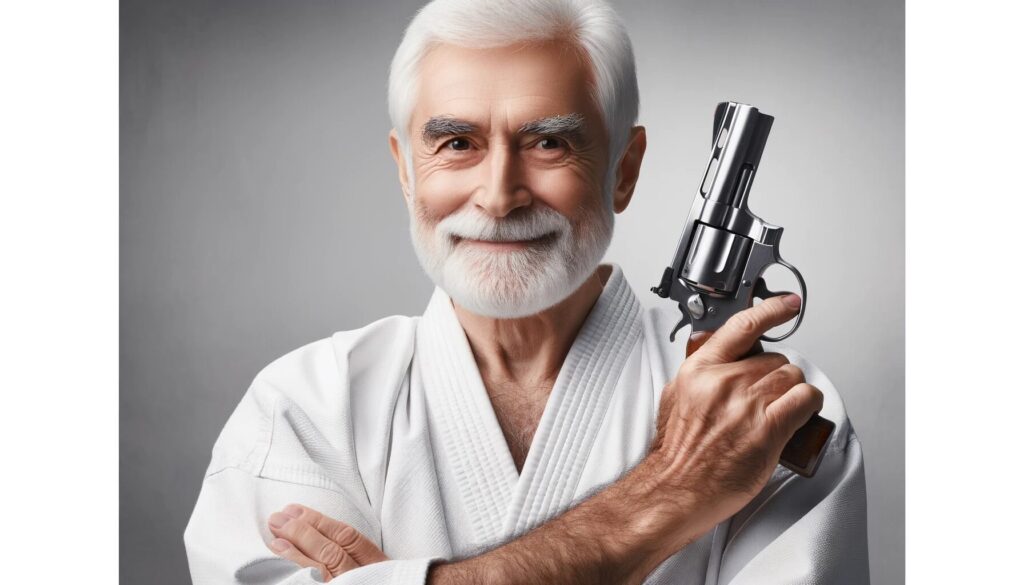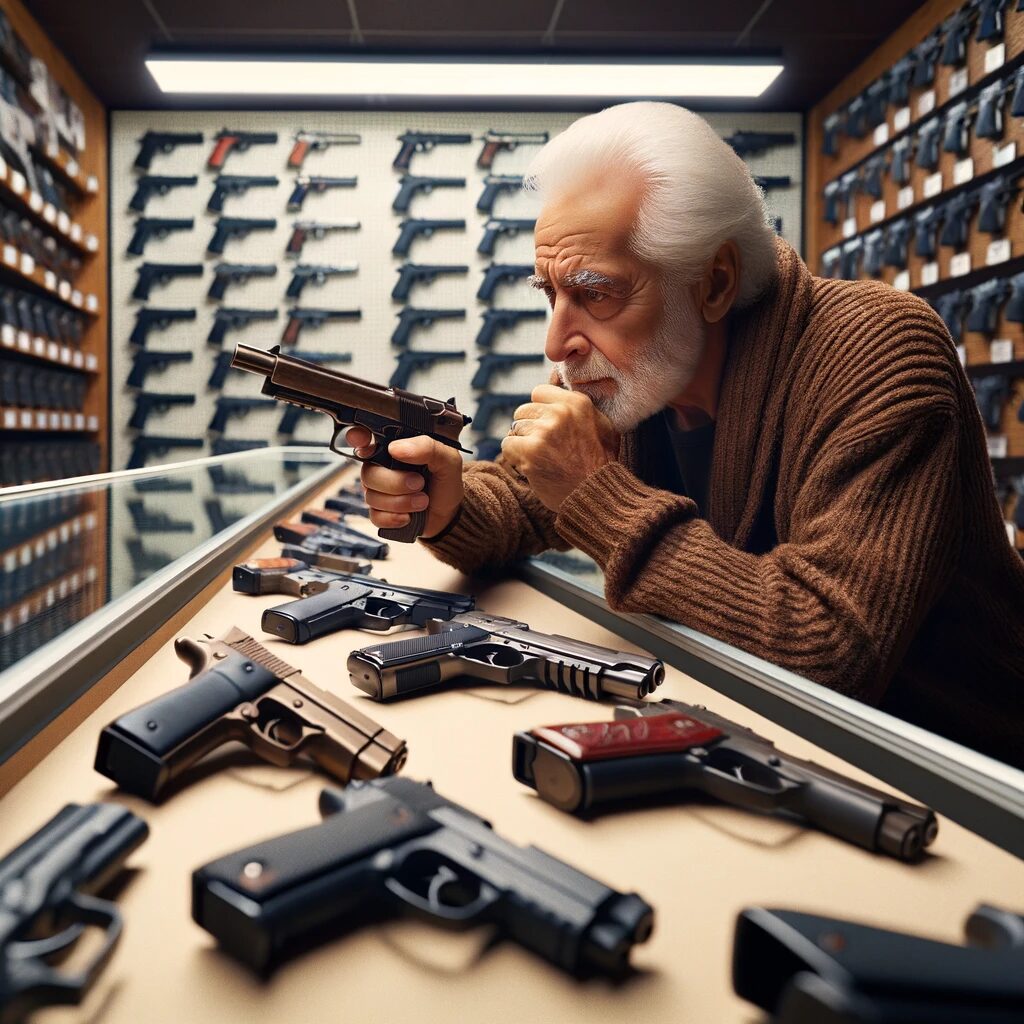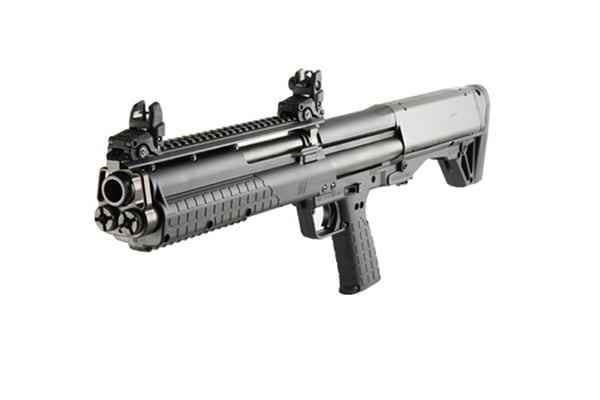
As we age, our physical capabilities often diminish, and the need for personal protection increases.
There are people out there that see senior citizens as potential victims who are too weak to fight back. But guns are the great equalizer.
For senior citizens, firearms are a vital form of self-defense. And yet even your relationship with guns changes as you age.
This blog post aims to explore self-defense strategies for senior citizens, focusing on the responsible use of firearms and alternative defense methods to ensure safety and empowerment.
Unique Challenges for Seniors in Self-Defense
1. Physical Limitations
As we age, we may experience decreased strength, mobility, and agility. These changes can affect our ability to handle and shoot firearms effectively.
It’s essential to acknowledge and address these physical limitations when considering self-defense options.
What does this mean? It might be time to switch to a smaller caliber for less recoil. Consider 380 ACP Auto and even 22 Long Rifle pistols.
It can also mean switching to a shotgun, that gives the added stability of your shoulder, a pistol grip and two hands. Recoil is also surprisingly soft, especially with semi automatic shotguns and 20 gauge shotguns. Even a 410 gauge can work for home defense.
Control, shot placement and follow up shots are far more important than caliber. So if you need to sacrifice some notional stopping power to get multiple shots on target without disabling you in the process, it’s time to go for smaller calibers and gauges.
2. Sensory Impairments
Hearing and vision impairments common in older adults can affect their situational awareness and ability to accurately use firearms.
Solutions such as laser sights, larger and clearer sights, can help mitigate these challenges. So get red dot sights on top of your pistols and shotguns.
Good red dots can brighten up low light conditions and give you almost night vision, so they’re a tactical advantage too.
Also consider much more advanced home security that gives you an unfair advantage.
3. Reaction Time
Slower reaction times can be a significant factor for seniors in self-defense scenarios. Training and choosing the right firearm and accessories can help compensate for this.

Firearms for Senior Citizens: Making the Right Choice
1. Revolvers vs. Semi-Automatic Pistols
Revolvers are often recommended for seniors due to their simplicity and reliability. However, the heavy trigger pull can be a drawback for those with weaker hand strength.
Semi-automatic pistols, with easier slide action and lighter trigger pull, can be a good alternative if the senior is comfortable with the additional operational complexities.
Many 380 ACP pistols are designed for ease of use in mind for women and the elderly. If you suffer with arthritis or simply don’t have the hand strength, then check out the likes of the Ruger Lite Rack II.
2. Caliber Considerations
Choosing the right caliber is crucial. While higher calibers offer more stopping power, they also come with increased recoil.
Lower calibers like .380 ACP can be a good compromise, offering effective defense capabilities with manageable recoil. High quality hollow points mean these bullets are way better than they used to be.
Also, try a semi auto shotgun. You might be surprised how much control it gives you, and how soft the recoil is these days.
3. Ergonomics and Accessibility
Firearms with ergonomic designs that fit well in smaller or arthritic hands are ideal. Additionally, seniors should consider the ease of accessing their firearm in a home defense situation.
Quick-access safes and convenient yet secure storage locations are important. Consider a biometric safe so you’re not messing with keypads when you really need a gun.
Also consider the location of your safe. If it’s up the stairs then think about changing that, or putting smaller supplementary hidden gun safes. It’s an affordable way to strategically secure guns around your house and save an awkward dash for your main gun safe.
Non-Firearm Self-Defense Options
Not all seniors are comfortable or capable of using firearms. Firearms training can fix these issues and it’s always going to be safer for you to just buy a gun, but there are options and non lethal home defense options.
1. Pepper Spray, Stun Guns and Batons
Pepper spray can be an effective deterrent, causing temporary blindness and pain without physical confrontation.
Stun guns and tasers are also options, though they require closer proximity to the assailant. They also tend to be complex systems that can fail.
A baton is a force mutiplier. Hit someone right with one and it will be exponentially harder than your fist or foot. You can stash simple weapons like this all over the house, but you need to learn to use them or they can be more of a hindrance than a help.
2. Personal Alarms
Personal alarms can deter an attacker by drawing attention with loud noises. They are simple to use and can be carried easily.
You can also get personal alarms linked to outside security, too, which is surprisingly affordable and ensures a fast response. In a time of increasingly uncertain police response times, this can give you peace of mind.
3. Self-Defense Classes
Many communities offer self-defense classes tailored to seniors. These classes focus on techniques that don’t rely on physical strength, such as using leverage or strategic striking points.
A course in Krav Maga or Jiu Jitsu can do wonders for your physical wellbeing too, and give you the confidence that you can handle an attacker should the worst happen.
Home Security Measures
Enhancing home security is a crucial aspect of self-defense for seniors. Simple measures can greatly reduce the risk of becoming a victim.
1. Security Systems and Cameras
Security systems, including cameras and motion sensors, can provide early warning of an intrusion and deter potential attackers.
A simple alarm is better than nothing, but lighting linked to motion sensors provides an instant deterrent to opportunistic thieves and home invaders.
You can get a more advanced system linked to an outside company that guarantees an operator will contact 911.
Depending on the service and jurisdiction they may also deploy an armed response team, and that comes with branding and a clear warning to the criminal community. Unless they’re really coming for you, they’ll leave your house alone.
2. Secure Doors and Windows
Ensurie that all entry points to tyour home are secure. Reinforced doors, quality locks, and window security measures mean you’re closing the door to all but the most determined criminals.
Make it difficult for them, don’t roll out the red carpet for home invaders.
3. Get a Dog
If you can handle sharing your home, a dog can be a fantastic companion that also deters attackers. A dog is a major lifestlye change, and they do need daily exercise.
But that can be good for you and plenty of senior citizens report that getting a dog gave them a new lease of life.
4. Safe Rooms
Traditionally called a panic room, a designated safe room where you’re protected during a home invasion can be total gamer changer.
The difference between life and death in an emergency is often just time. If you can get to a safe place and wait for police or other help to arrive, then you’ll live to fight another day.
This room should have reinforced doors, communication equipment, and access to a firearm or other defense tools if needed.
Training and Practice = Effective Self-Defense
Regular training and practice are essential, particularly for seniors using firearms.
This helps in maintaining proficiency, understanding the limitations, and building confidence in self-defense capabilities.
So go the range, take classes, get out there and shoot your gun.
1. Firearms Training
Seniors should seek out firearms training courses that cater to their specific needs. These courses can provide valuable tips on handling, shooting, and maintaining firearms.
2. Practice Sessions
Regular practice sessions, both at the shooting range and through dry-fire exercises at home, are important. They help in maintaining familiarity with the firearm and in practicing quick and safe firearm use.
3. Legal Considerations and Responsibilities
Understanding the legal implications of using a firearm for self-defense is crucial for seniors. This includes knowing the laws regarding self-defense in their jurisdiction and the legal processes involved in the aftermath of a defensive shooting.
Invest in concealed carry inurance, and also a policy that covers potential legal bills when you use a firearms for home defense.
You can be right, but without adequate cover then the legal bills can be frightening and a life changing reminder of a painful incident.
FAQ
1. What type of firearm is best suited for senior citizens?
The best firearm for a senior citizen depends on their physical capabilities and comfort level. Revolvers are often recommended for their simplicity, but semi-automatic pistols can be a good choice for those with limited hand strength.
2. Are there specific self-defense strategies for seniors with mobility issues?
Seniors with mobility issues should focus on strategies that don’t rely on physical strength or agility. This includes using strategic positioning in their homes, leveraging accessible self-defense tools like pepper spray, and learning techniques that use leverage rather than force.
3. How can seniors compensate for slower reaction times in self-defense scenarios?
Seniors can compensate for slower reaction times by enhancing their situational awareness, keeping self-defense tools readily accessible, and choosing firearms or non-lethal weapons that are easier to operate.
4. What non-lethal self-defense options are available for seniors?
Non-lethal options include pepper spray, stun guns, tasers, and personal alarms. These tools can be effective in deterring an attacker without requiring physical confrontation.
5. What are some important home security measures for senior citizens?
Important home security measures include installing a reliable security system, reinforcing doors and windows, ensuring good exterior lighting, and possibly setting up a safe room. These measures can significantly enhance a senior’s safety in their home.


